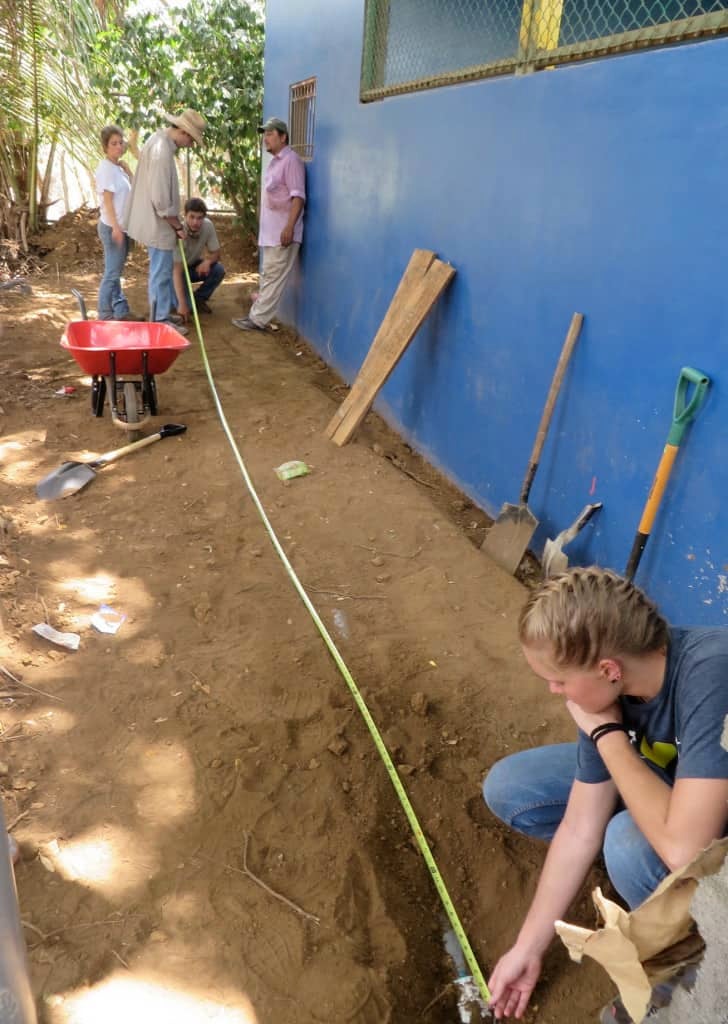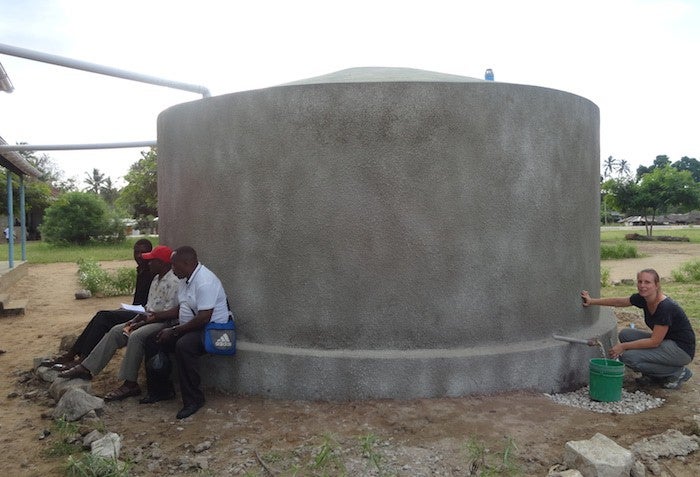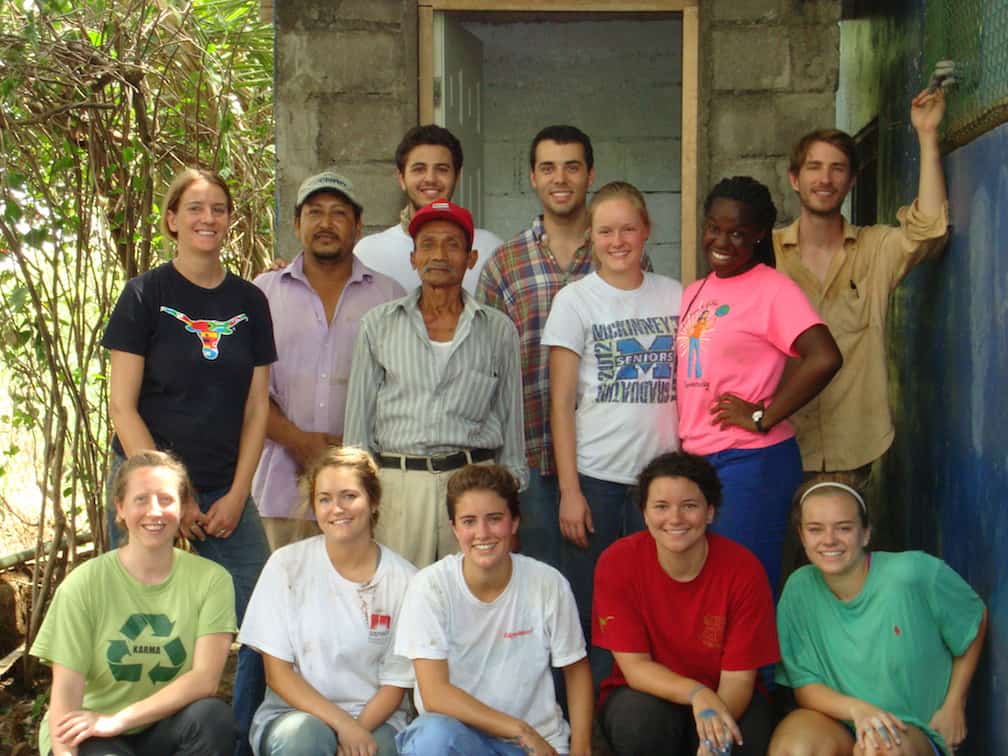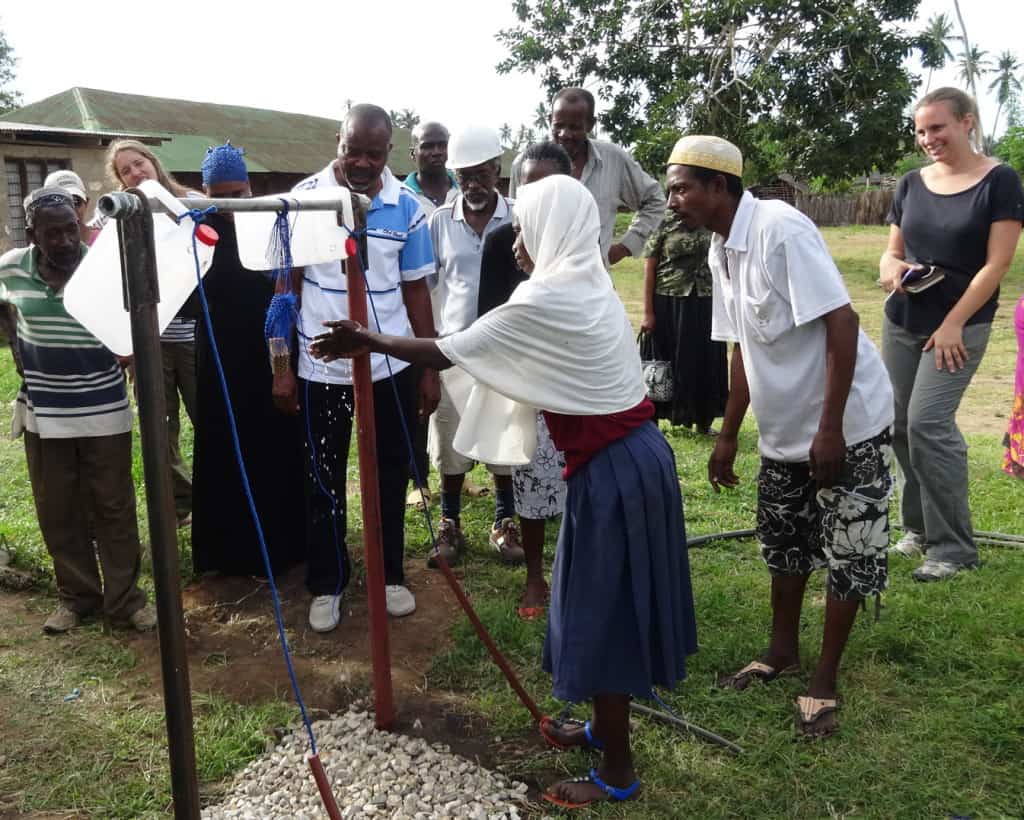
Social work master’s students Lindsay Morris and Jennifer Heggland have just returned from their service learning trips with Projects for Underserved Communities (PUC), a collaboration between UT International Office, Cockrell School of Engineering, and the School of Social Work. Dr. Dorie Gilbert is the PUC liaison for the School of Social Work.
Morris was part of a team that built a functioning public bathroom with a flush toilet for a community clinic in Managua, Nicaragua. Heggland’s team created a roof water collection system for a community in the Tanga region of Tanzania. The system was installed on the primary school, the biggest roof in the community.
What was the most challenging moment of the trip?
Morris: One of the most challenging moments was when our team arrived and found out that the concrete foundation for the bathroom had not been laid. There was some miscommunication with the contractors and Manna, the in-country nonprofit we were working with, which houses the clinic. There was this crisis moment, because we were on a very tight schedule, and we thought we were not going to be able to finish the project. In the end, we were able to adapt and we actually finished one day earlier, but that first day was hard.

Heggland: It was challenging to figure out how to involve community members in the project. We had all these ideas, but when we got to Tanzania there were many issues we had not anticipated, such as the contractor not being so keen on community members volunteering, or the fact that it was the growing season and people were really busy. We also had to prove ourselves. We were all women in my team, and during the first meeting we were challenged by community leaders, who asked how we, girls from the United States used to tell machines what to do for us, were going to do the hard manual labor of building the water collection system. By the end, however, the contractor acknowledged our hard work and the leaders were much friendlier to us.
And what was most rewarding moment?
Morris: The ribbon-cutting ceremony for the bathroom we built was very rewarding. It included our PUC group, Manna volunteers, community members and leaders, and representatives of Kimberly-Clark, which had donated to the project. One of the Manna volunteers made this beautiful art project with printed hands on the bathroom walls, we presented donors with a big thank you card, and we worked with a community member to do an engagement activity for kids to explain the value of having a sanitary bathroom and the need to wash your hands after using it. It was a really proud moment to show how much we had accomplished in partnership with Manna.

Heggland: We were lucky enough that we had this rain the last day we were in Tanga. We were nervous, thinking, ok, that rain better make it to the tanks! So when we turned the spigot on, and saw the water streaming out, clean and beautiful, smelling fresh, that was very rewarding. This system will be the cleanest source of water available for this community.
Do you have a memory that encapsulates PUC purpose?
Morris: Observing the clinic in action every day. Our goal was to provide a sanitary solution for this clinic. From the minute the clinic opened until the minute it closed there were people coming in, all kinds of people: pregnant women, children, older people in wheelchairs, people with diabetes… seeing the impact of the clinic on a daily basis made me really proud of our project. The clinic is run by a female doctor and a female nurse, both Nicaraguans, and it was very inspiring to see how much they do with so little.

Heggland: After the main project was done, we were able to build a couple of washing hand stations, called the Tippy Tap, for the school. This project brought everybody to a very equal plain level: my team had the design from the Tippy Tap website but we had never tried it out, the contractor had never seen anything like it but was very interested and came over to help, and the community also came over and gave us advice on how to make the design better. So we really had all the pieces that are at the core of a PUC project—our team, the community, the contractor—putting their minds together for the Tippy Tap, having a say, and communicating and connecting in this beautiful way.
How did you contribute as a social worker to the PUC team?
Morris: As we prepared for the trip, Jennifer and I conducted a module during class to help our teammates think about issues of power, privilege, and oppression. I think we also helped them to think about fund-raising for the trip not only in terms of raising money but also raising awareness. Once I was in Nicaragua, I think my social work skills were useful in terms of community engagement and how to integrate ourselves in the most productive manner with Manna.
Heggland: My skills were valuable in the community discussions, learning how to present suggestions based on what we had read and learned about the area, but being very open to the community saying, no, we don’t want that, and us being ok with it and accepting that they know better what’s best for them. I also reached out to the school’s teachers and asked for their input, and helped them have a voice in the process.
Posted July 14, 2014. By M. Andrea Campetella. Pictures by Lindsay Morris and Jennifer Heggland.

